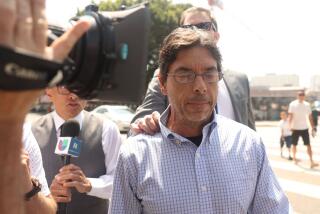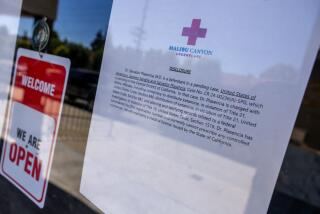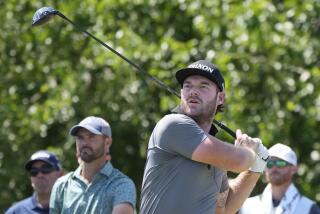Conrad Murray’s defense ends without him taking the stand
- Share via
Testimony drew to a close in the involuntary manslaughter trial of Michael Jackson’s personal physician Tuesday as the doctor announced he will not testify in his own defense.
Dr. Conrad Murray waited until the last possible moment to declare his intention not to take the stand, telling the judge as late as Monday afternoon he had yet to make up his mind. After the final defense witness completed his testimony Tuesday, Murray took his time responding to the judge’s question about his final decision.
After informing Murray of his constitutional right to testify or to remain silent, Los Angeles County Superior Court Judge Michael Pastor asked the doctor, “What is your decision?”
Murray paused, looked to his lead defense attorney Ed Chernoff and then to his left at two other lawyers. The audience in the packed courtroom, including the Jackson family, waited on the edge of their seats.
The physician opened his mouth and began saying: “My decision is to not testify....”
Murray’s response was interrupted by a prosecutor who objected, saying the doctor was giving a “narrative answer.” The judge asked Murray again and he replied, “My decision is that I will not testify in this matter.”
Pastor, who previously told the doctor the right was his independent of any strategy by his attorneys, asked Murray if the decision was his alone.
“You are making this decision based on your own free will?” Pastor asked.
“Yes,” Murray said. Chernoff added that he had conferred with his client about the decision “many times” and that the doctor understood his rights “very well.”
It is rare for criminal defendants to testify, and legal observers following the case have said it would be unlikely and unwise for Murray to choose to do so.
The cardiologist probably would have been subject to blistering cross-examination by prosecutors on what witnesses have said were Murray’s many cover-up attempts and egregious medical misjudgments.
Yet Murray appeared to have seriously weighed the option, telling the judge Monday it “depends on how case progresses.”
With the doctor’s announcement, Murray’s defense rested its weeklong case after having called to the stand a handful of character witnesses and two medical experts.
Their final witness, anesthesiologist Dr. Paul White, conceded that Murray had made errors in judgment but said Jackson accidentally took his own life by injecting himself with the surgical anesthetic propofol.
In a brief rebuttal case, prosecutors called back to the stand their chief medical expert, Dr. Steven Shafer, to counter White’s contentions and reinforce his earlier testimony that Murray probably left an intravenous drip of the anesthetic propofol running into Jackson’s veins after the singer’s heart stopped.
Shafer refuted White’s testimony that levels of the drug found in Jackson’s urine proved that scenario was wrong. In that analysis, White relied on an outdated 1988 study, Shafer said. In fact, more recent research on the drug supports his hypothesis on what happened in the hours leading up to the pop star’s death, Shafer testified.
The latest research also illustrated that Jackson could not have given himself an injection of the drug, the scenario White said was more likely, Shafer said.
“Does it absolutely rule out the hypothesis put forth by Dr. White?” Deputy Dist. Atty. David Walgren asked.
“Absolutely,” Shafer replied.
Once Shafer finished on the stand, prosecutors also rested their case, setting the stage for closing arguments Thursday.
Outside the jury’s presence, the attorneys and the judge discussed instructions to be read to the panel before it begins deliberating.
Prosecutors said they would offer jurors two separate theories of involuntary manslaughter: that Murray’s conduct — using propofol — was a lawful act, but done in a criminally negligent manner; or that he failed to perform his legal duty as a physician.
Over defense attorneys’ objections, Pastor also accepted a jury instruction that goes to the question of whether Murray could be convicted even if jurors believe the defense’s contention that Jackson injected himself.
Jurors will be told that Murray is still criminally liable “if the defendant should have foreseen the possibility of harm that could result from his act.”
More to Read
Sign up for Essential California
The most important California stories and recommendations in your inbox every morning.
You may occasionally receive promotional content from the Los Angeles Times.












